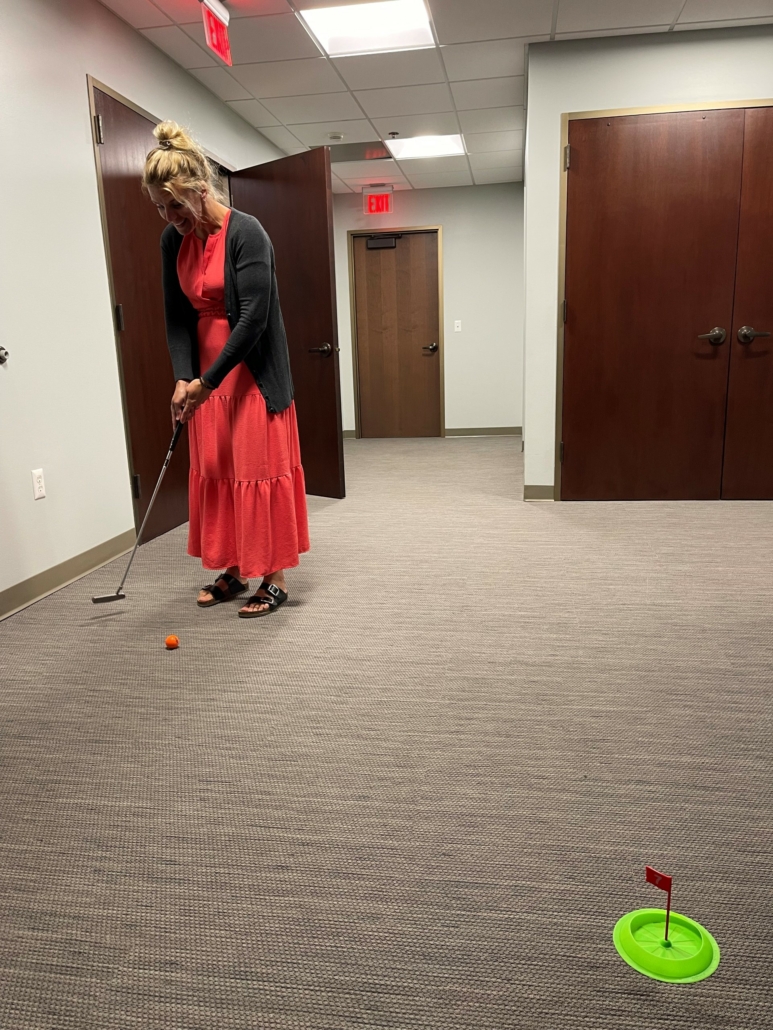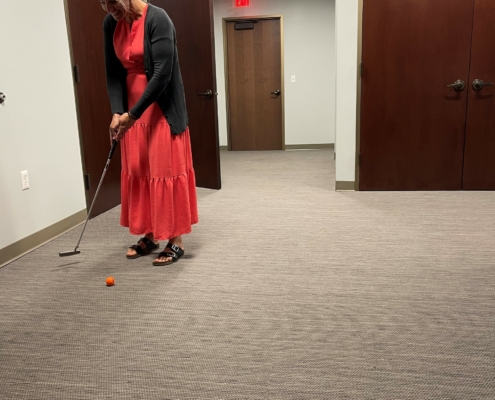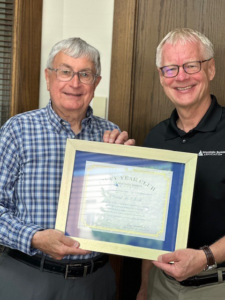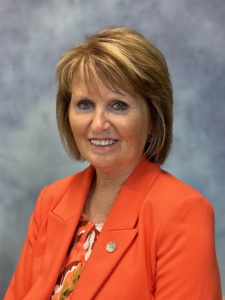WBA’s top marital property questions
The Wisconsin Marital Property Act presents unique community property considerations for Wisconsin banks. While nothing has changed in this area of law, its nature gives rise to some frequently asked questions. Below are two of the most commonly received questions through the Wisconsin Bankers Association’s (WBA) Legal Hotline.
Question 1: Is a bank permitted to pull credit on a non-signing spouse?
Answer 1: Yes. When dealing with married Wisconsin residents, a bank is permitted to pull credit on a non-signing spouse and may even be required to do so.
Wisconsin Section 766.56(1) requires creditors to consider all marital property available to satisfy the debt when evaluating a married Wisconsin resident’s application for family purpose credit. Where there is an obligation in the interest of the marriage or family, being a “family purpose” obligation, the creditor must consider all marital property available to satisfy the obligation in the same manner that it considers the availability of property of an unmarried applicant. While the law does not define “family purpose,” the presumption is that an obligation incurred by a spouse during marriage is family purpose. Additionally, income would be presumed to be marital property unless there is a marital property agreement indicating otherwise. Because the Wisconsin Marital Property Act requires creditors to consider all marital property available to satisfy the debt, a bank may be required to do so.
Regulation B Section 1002.5(c)(2) allows the bank to request information about the applicant’s spouse if the applicant resides in a community property state or is relying on property located in such a state as a basis for repayment of the credit requested. As Wisconsin is a community property state, banks are permitted to pull credit on a non-signing spouse.
Question 2: How does the Homestead Rule Affect Mortgages for Married Wisconsin Residents?
Answer 2: Wis. Stat. Section 706.02(1)(f) requires that each spouse with homestead rights must sign the mortgage for it to be valid unless an exception applies. In this context, homestead means the dwelling, and so much of the land surrounding it as is reasonably necessary for use of the dwelling as a home, but not less than one-fourth acre, if available, and not exceeding 40 acres. It is WBA’s understanding that title companies are typically able to provide an indication of whether the property would be considered a homestead under this definition.
Once a bank has determined the pledged property as a homestead, the bank must consider Section 706.02(1)(f). If the mortgage alienates any interest of a married person in a homestead, then each married individual must sign the mortgage in order for it to be valid. The only exceptions to this rule are for conveyances between spouses and for purchase-money mortgages.
Question 3: What is a “Marital Purpose Statement?”
Answer 3: Many software platforms will provide what is called a “marital purpose statement” or otherwise incorporate some type of statement to the fact that an application for a loan is in the interest of the marriage or family. While the use of such a statement depends on the specific statement produced by bank’s software system as well as policy and procedure, there are some general concepts under Wisconsin’s Marital Property Act which help in understanding it.
Per Wis. Stat. section 766.55, an obligation incurred by a spouse during marriage is presumed to be incurred in the interest of the marriage or the family and a statement separately signed by the obligated or incurring spouse at or before the time the obligation is incurred stating that the obligation is or will be incurred in the interest of the marriage or the family is conclusive evidence that the obligation to which the statement refers is an obligation in the interest of the marriage or family.
Because the separately signed marital purpose statement provides conclusive evidence of this fact, WBA generally recommends that when bank is extending credit to a married Wisconsin resident, whether solely or joint credit, that bank should obtain this statement.
Without having such separately signed statement, if the loan were to go into default and bank is seeking to collect against marital assets, bank must first prove that the debt was marital obligation, incurred in the interest of the marriage or family — by bank having such separately signed statement, it is conclusive evidence for the bank to prove this fact.
Question 4: What are the Wisconsin “Tattletale Notice” Requirements?
Answer 4: Wis. Stat. section 766.56(3)(b) requires certain notices be provided to a borrower’s spouse for loans governed by the Wisconsin Consumer Act involving marital property.
More specifically, the requirements apply when a creditor extends credit to a spouse in a credit transaction governed by chs. 421 to 427 and the extension of credit may result in an obligation described under s. 766.55(2)(b). In this, “Tattletale Notices” apply to transactions governed by the Wisconsin Consumer Act, and an obligation incurred by a spouse in the interest of the marriage or the family. A loan transaction that is governed by the Wisconsin Consumer Act is one that is: (1) consumer, family or household purpose; (2) $25,000 or less; and (3) not secured by first lien or equivalent security interest in the borrower’s principal residence.
In such a situation, the lender must provide a copy of the instrument, document, agreement, or contract evidencing the obligation to pay or any required credit disclosure which is given to the applicant spouse, or by providing a separate writing briefly describing the nature of the credit extended.
Question 5: What is a “Spousal Consent to Guaranty?”
Answer 5: Some software providers may make available a spousal consent to guaranty form. For example, WBA and FIPCO have a form created to protect the creditor’s ability to collect on the guaranty from all marital property belonging to the couple. This form is based upon the fact that the Wisconsin Marital Property Act generally limits gifts of marital property to third parties by one spouse acting alone to $1,000 per calendar year unless the spouses act together in making the gift (See: Wis. Stat. Section 766.53.)
While WBA does not necessarily view payments on guaranties as gifts to the third party, in the event a court characterized the payment as a gift, by obtaining the non-guarantor spouse’s consent to the guaranty, the creditor would then not be limited to the $1,000 per calendar year amount.
Additionally, while spouses may act together to make a gift, WBA strongly cautions against requiring the signature of a guarantor’s spouse on the loan. Regulation B prohibits a creditor from requiring the signature of a guarantor’s spouse just as it prohibits requiring the signature of an applicant’s spouse. Thus, a creditor cannot require the guarantor’s spouse to sign the guaranty to protect its interest. Instead, the creditor should obtain the non-guarantor spouse’s consent to the guaranty by execution of a form such as the one described above.
Question 6: What is a “Spousal Consent to UCC Filing?”
Answer 6: The Uniform Commercial Code (UCC) provides rules for perfecting of security agreements. One method of perfecting a security agreement is through the filing of a financing statement. However, as a general matter of the UCC, a creditor can only file a financing statement if authorized by the debtor. In the event that a creditor — such as a bank — does not have such authorization, the filing is not valid, and bank could be penalized. Debtor means a person having an interest in the collateral. Generally, this is a borrower — but it could be a third-party pledgor or include non-signing spouse as well.
Authorization is given when signing the security agreement. Thus, a debtor does not need to give separate authorization because they will sign the security agreement. If the spouse is a “debtor,” and also signs the security agreement, then they have also given authorization and separate authorization is also not necessary. However, if the spouse is a “debtor” and does not sign the security agreement, then separate authorization is required, so the consent is required. In this situation, many software platforms will provide a means to accomplish this through a form such as a “spousal consent to UCC filing/financing statement.”
If you have any additional questions regarding Wisconsin’s Marital Property Act, or any other legal question, please contact WBA’s legal team.


 By Rose Oswald Poels
By Rose Oswald Poels







 By Craig Rogan, Nicolet National Bank
By Craig Rogan, Nicolet National Bank A farm open to the market where income continues to decline greater than expenses could find its puzzle pieces in disarray. In this scenario a farm may have a significant portion of their expenses locked in — just like the larger blue connected area of this puzzle. Income could be compared to the smaller colorful section in the middle — a lesser percentage is locked in than expenses; therefore, not protecting the full margin, only a portion. A significant number of stray pieces remain that are needed to complete this puzzle.
A farm open to the market where income continues to decline greater than expenses could find its puzzle pieces in disarray. In this scenario a farm may have a significant portion of their expenses locked in — just like the larger blue connected area of this puzzle. Income could be compared to the smaller colorful section in the middle — a lesser percentage is locked in than expenses; therefore, not protecting the full margin, only a portion. A significant number of stray pieces remain that are needed to complete this puzzle.





 By Darla Sikora, Citizens State Bank of Loyal
By Darla Sikora, Citizens State Bank of Loyal

